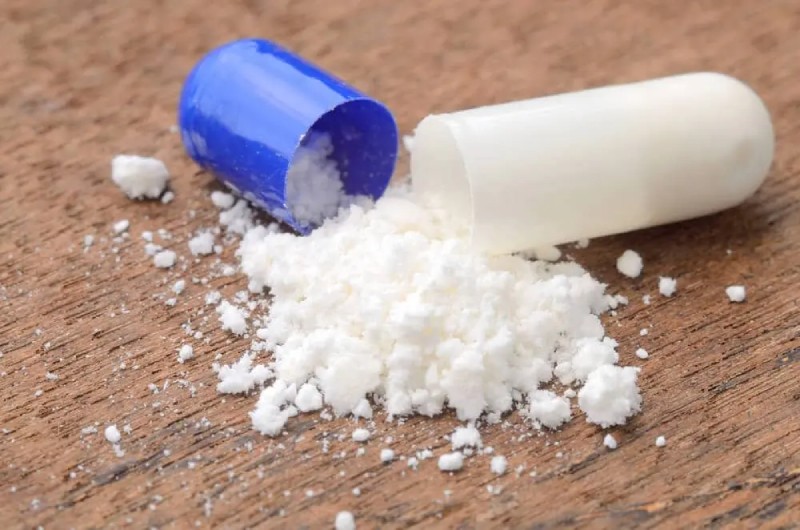Health
What is angel dust? And why is it so dangerous?

The most recent data from the CDC in 2019, (National Center for Health Statistics) it was reported that 13% of people over the age of 12 had used an illicit drug in the previous 30 days. One of these illicit drugs popular on the streets is angel dust, with the chemical name phenyl cyclohexyl piperidine, also known as PCP.
In the natural state angel dust is a pure snowy-white crystalline substance in the form of powder. Buying it on the street may be a little more tricky to recognize. The street form of angel dust comes in powdered form along with pills and liquid. The color more than likely ranges from a cream color all the way to a tarry brown. So, what is angel dust? Continue reading below for more information on this dangerous street drug.
PCP’s History in the Medical Field
PCP, also known as angel dust on the street, was initially developed and used by the medical community at large for general anesthesia to sedate patients before surgical procedures. It wasn’t long before physicians discontinued the use of PCP in medical practice due to negative side effects. Veterinarians continued using the drug as anesthesia until 1978 when negative consequences were reported in animals as well. There are currently no medical uses for PCP today.
Common Forms
Angel dust comes in many forms. As a powder angel dust is a very bitter substance and although it can be mixed into water, users find it much easier to take it in pill form. Alternatively, the drug can be injected, or left in powder form to snort, smoke, or vaporize.
Another common way to use angel dust is to combine it with other drugs. By using angel dust in the liquid form it is popular to spray the concentrate on tobacco or herbs such as mint or oregano and smoke it. It is important to note that whether intentional, or accidentally, angel dust can be absorbed through the skin and mucous membranes.
Side Effects
Angel dust is often associated with LSD and MDMA as it tends to cause hallucinations. It also increases physical numbness therefore decreasing the ability to feel pain. With the increase of aggression that sometimes comes along with angel dust, users often do not notice even serious injuries. While deaths from overdose are not common, injuries and deaths are noted to increase from the lack of judgment or emotions.
Drug Testing
By now you must be wondering, “What is angel dust testing for detection methods, and how long does it stay in your system?” Generally, PCP is detectable by blood sample for around 24 hours. Saliva tests and urine samples can show the presence of angel dust up to a month. Hair analysis results are typically limited to 90 days.
Search For Addiction Treatment Today
There is hope. If you came here asking, “What is angel dust” while searching for help for yourself, or possibly loved ones, understand that help is available. Addiction to angel dust is a serious problem that can be handled with competent medical and emotional support. Additionally support groups for the use of angel dust can be of great help to those recovering from addiction.
-

 Business3 weeks ago
Business3 weeks agoPrakash and Kamal Hinduja: Driving Social and Environmental Change
-
Education4 weeks ago
Fred DuVal: University Leadership as a Critical Resource for Climate Change Research and Life-Saving Solutions
-

 Health3 weeks ago
Health3 weeks agoThe Hinduja Brothers Commitment to Global Health: Empowering Communities Across Borders
-

 Cryptocurrency3 weeks ago
Cryptocurrency3 weeks agoDesigned For The Masses: How Akasha (AK1111) Is Unlocking Crypto For The Next Billion Users
-

 Cryptocurrency4 weeks ago
Cryptocurrency4 weeks agoNexaglobal & Future World Token (FWT): Could This Be the Next Big Crypto Investment of 2025?
-

 Sports4 weeks ago
Sports4 weeks agoWomen’s NCAA Tournament 2025 Sweet 16: Full Schedule, Fixtures, Teams, Bracket, and How to Watch March Madness Basketball Match Live
-

 Startup1 week ago
Startup1 week agoCost-Saving Strategies Every Small Business Owner Should Know to Boost Efficiency
-

 Startup3 weeks ago
Startup3 weeks agoMatthew Denegre on the Art of Deal Sourcing: Finding the Right Investment Opportunities











